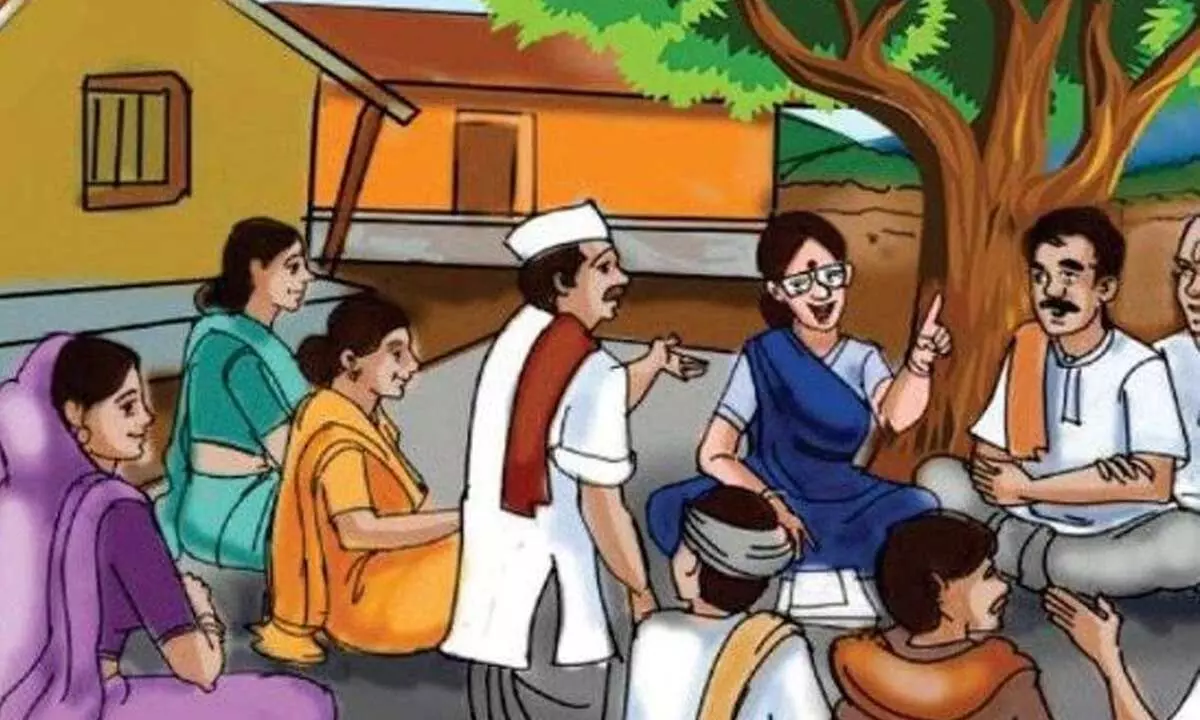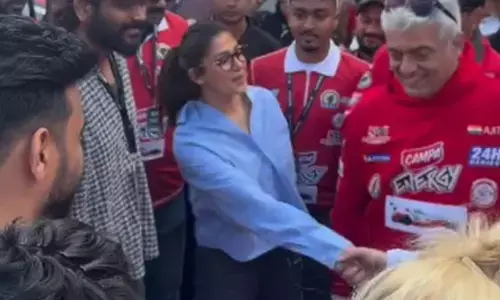Decentralisation: CM YS Jagan Mohan Reddy's vision differs with nation builders

Representational image
- Balwant Rai Mehta Committee report in 1957 recommended establishment of the scheme of 'democratic decentralisation' that finally developed into panchayat raj
- As per recommendations, the functions of the panchayat samiti should cover the development of agriculture in all its aspects, improvement of cattle, promotion of local industries, public health, welfare work, etc.,
Vijayawada: Chief Minister YS Jagan Mohan Reddy in his Independence Day speech laid emphasis on decentralisation and development as a key to overall progress of the state and its people. His speech had all the lofty ideas and sounded as a well-thought out delivery. He also praised the village secretariat and volunteer system for the 'pivotal role' being played in reaching the benefits directly to the people.
The speech was hailed by the YSRCP leaders as a remarkable one. However, that is not how development was envisaged by the stalwarts of our freedom movement who laid a clear path to progress soon after Independence.
Jagan Mohan Reddy's praise of nation builders is in stark contrast to the values cherished by the then political leadership. The Central government constituted the Balwant Rai Mehta Committee on January 16, 1957 to examine the working of the Community Development Programme and the National Extension Service and to suggest measures for their better working.
The committee wasted no time and submitted its report on November 24, 1957 and recommended the establishment of the scheme of 'democratic decentralisation' that finally bloomed into panchayati raj. The aim of the system was to settle the local problems locally and to make the people politically conscious too.
Among the important recommendations of the committee are: The functions of the panchayat samiti should cover the development of and agriculture in all its aspects, improvement of cattle, promotion of local industries, public health, welfare work, administration of primary schools and collection and maintenance of statistics. It should also act as an agent of the state government in executing special schemes of development entrusted to it. Other functions should be transferred to the panchayat samitis only when they have started functioning as efficient democratic institutions
"The state government should give to these samitis adequate grants- in-aid conditionally or unconditionally or on a matching basis, with due regard to economically backward areas. All Central and state funds spent in a block area should invariably be assigned to the panchayat samiti to be spent by it directly or indirectly excepting when the samiti recommends direct assistance to an institution. The technical officers of the samiti should be under the technical control of the corresponding district level officers but under the administrative and operational control of its chief administrative officer".
"If this experiment of democratic decentralisation is to yield maximum results, it is necessary that all the three tiers of the scheme, viz., village panchayat, panchayat samiti and zilla parishad should be started at the same time and operated simultaneously in the whole district".
Whoever has prepared the CM's speech has either deliberately ignored what our freedom fighters envisaged or only planned to pamper the ego of the leader.
The very introduction of the village secretariats and volunteer system is anti-democratic and does not amount to decentralisation of administration going by the yardstick set by the Balwant Rai Mehta Committee. One of the recommendations of the committee also says that "sufficient resources should be transferred to these bodies to enable them to discharge their functions and fulfil their responsibilities. A system should be evolved to effect further devolution of authority in future".
The committee's priority was development and decentralisation while today's government envisages political control and centralisation at the expense of the panchayati Raj system itself. Fund diversion is an example.








